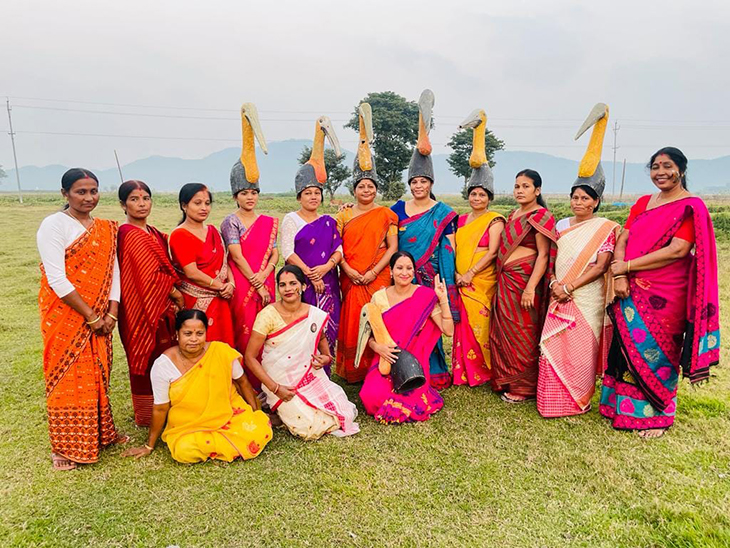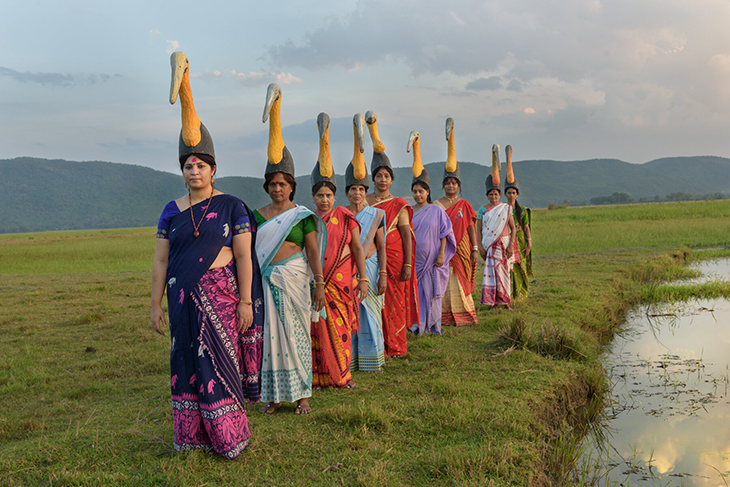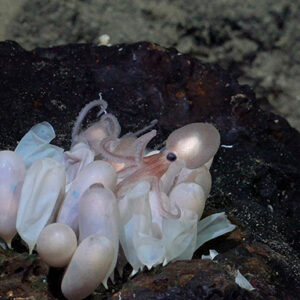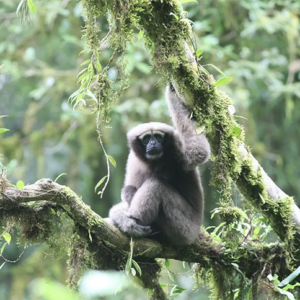
Apparently, the Greater Adjutant stork, whose scientific name is Leptoptilos dubius or also hargila – meaning bone swallower in Assamese, is on the endangered species list and it’s one of the around 20 species of this particular bird that can be found in India.
Now, there is a group of women that are working towards changing people’s ideas and attitudes when it comes to animal conservation in Assam, a state in India. In fact, these women are so adamant about their purpose, that they have been wearing paper-mâché hats made in the shape of these birds in order to make a point and show their support for this threatened fowl.
The greater adjutant was once reviled due to their incredibly bad smell, unattractive appearance, and carrion-filled diet, however more recently, they have become welcome member of communities that used to kill them, all because of the work on one pioneering conservationist now being hailed a hero.
For Dr. Purnima Devi Barman, she says that her interest in protecting the great adjutant is due to her “mothering instinct.” Because of its better known yet adverse traits, this bird has been persecuted for most of its life. Moreover, it also has superstitious beliefs attached to it as bringers of bad omens, and sadly are now only found in two Indian states, as well as in Cambodia.
During her PhD studies in stork biology, Dr. Barman took interest in this particular bird after going to a village where a few residents had cut down a nest tress that left many greater adjutant stork chicks either dead or severely injured. After seeing the way that the villagers had treated these poor storks made her realize that something needed to be done to change the way people saw these birds in Assam or else they would soon be extinct.
She decided to hold festivals in the villages along India’s Brahmaputra River to celebrate the villagers that lived there and who had Burflower-trees – or kadam – in their yards, to honor them for being protectors and guardians of a rare bird. When people began to see the way others were being appreciated for protecting the bird, it made them also become protectors of the greater adjutant, giving it safe places to nest and survive.
In addition, Dr. Barman also used these moments to point out that considering the diet of the greater adjutant is exclusively that of carrion, which is the decaying flesh of animals, they also play a very vital role in keeping the ecosystem free from diseases the come with such dead animals that are not cleaned up.
As a result, Dr. Barman has also become recognized among global conservationists for assembling 10,000 women into the “Hargila Army” that are tasked to advocate for and protect these precious storks.

Dr. Barman told The Guardian, “Conservation is all about uniting people and building ownership. I’ve always believed that, if given a chance, women can make a big difference in conservation.”
A report from the Ethnobiology Letters journal tells us that back in 2008, there were only a few nests left. However, due to Dr. Barman’s groundbreaking approach to the helping this bird managed to increase that number to 200, just 10 years later. Since then, the number of individual storks grew to above 1,000 in Assam alone.
Then in 2021, Dr. Barman put up the Hargila Learning and Conservation Centre in a government school located in the Pacharia village. Here, female volunteers use games and songs to encourage the children to protect the birds as they grow and get older.
Last year, Dr. Barman was named ‘World Female Ranger,’ while also being given the highest female civilian honor from the Indian central government, the Nari Shakti Puraskar. And just this year, she received the UN Environment Programme’s Champions of the Earth award, all titles she so clearly deserves.
What are your thoughts? Please comment below and share this news!
True Activist / Report a typo


